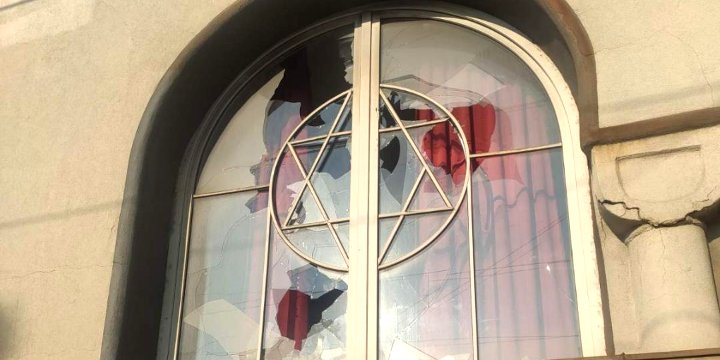A Jewish cemetery in Belgrade, Serbia was vandalized Wednesday night, when an axe, hammer and stones were thrown through the window of its chapel.
A spokesperson for the Jewish Community of Belgrade told The Algemeiner that the incident had caused serious material damage, noting that if the chapel had been occupied, it could have resulted in “severe physical injuries or even death.”
The spokesperson said that “this act reminds us of Kristallnacht,” the Nazi-led riots against the German Jewish community in 1938.
On Thursday, European Jewish Association Chairman Rabbi Menachem Margolin wrote to Serbia’s Minister of Internal Affairs, calling for a full investigation.
“It is clear that whoever was responsible has no respect for the dead, never mind the living,” Margolin said in a statement. “We extend our support to our Jewish brothers and sisters in Belgrade and Serbia as a whole, who must be reeling at this attack, and feeling vulnerable.”
“I have written to Serbian minister of Internal Affairs asking for a robust response to the attack, as well as a full throated condemnation, lest the antisemites that carried out this act believe that it is now open season on Jewish buildings in Serbia.”
The vandalism is the latest in a series of antisemitic incidents to hit the Belgrade Jewish community. The Jewish Community told The Algemeiner of repeated antisemitic harassment against a prominent Jewish epidemiologist, including graffiti that compared him to the infamous Nazi doctor Josef Mengele, as well as demonstrations outside the epidemiologist’s home in which demonstrators wore yellow Stars of David.
Threats of a second Holocaust have also been received at the Community’s Facebook page, as well as Nazi symbols, antisemitic emails, and other threats.
Axe Thrown Through Window of Belgrade Jewish Cemetery Chapel














